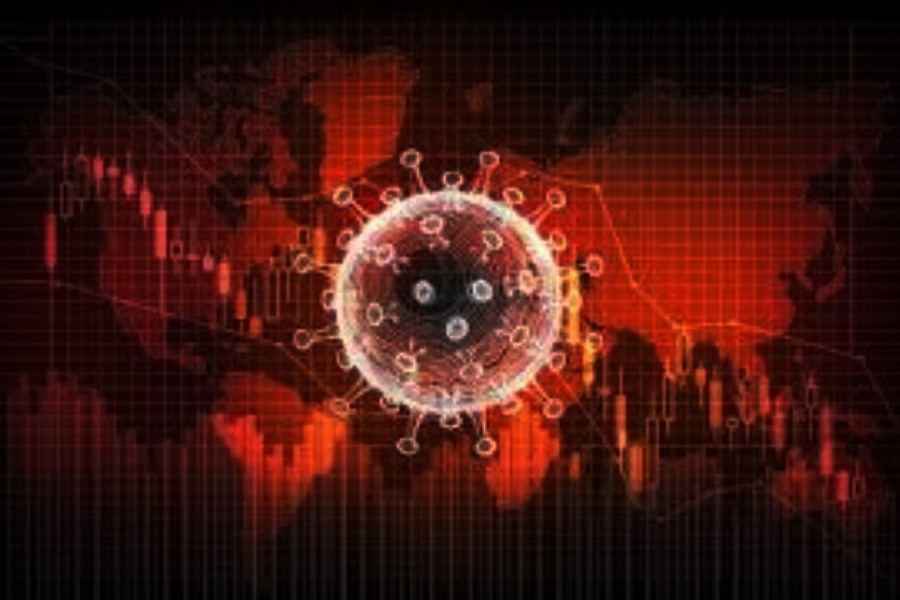With the modernisation efforts and hasty development process, the globe witnessed appearance of a striking number of novel epidemic and pandemic viruses and the comeback of some known viruses to halt our move forward.
A wide range of factors are considered responsible for the emergence and re-emergence of these diseases that include increased density of humans, animals and plants; increased travel and movement of humans; increased transportation of animals, plants and other commercial goods by ship; deforestation and afforestation; urbanisation and irrigation projects; and increased numbers of relocation of people. Ocean travel using ships brought remarkable mobility in the globe. There are evidences that rodent, a very successful traveller in the oceans, was responsible for several rodent-associated viruses that are widespread in North America and are genetically very close relatives of African viruses. They almost certainly arrived in the Americas on cargo or slave ships via infected rodents. In addition, during the recent decades, climate change has been revealed as a major factor in spreading diseases.
A recent research, published in WHO web, notes that the apparent increase in many infectious diseases like HIV/AIDS, hantavirus, hepatitis C, SARS etc., in the globe reflects the combined impacts of rapid demographic, environmental, social, technological and other changes in our way of living. Changes in infectious disease transmission patterns are a likely major consequence of climate change.
There is historical evidence of association between climatic conditions and infectious diseases. Malaria is of great public health concern, and seems very sensitive to long-term climate change. Excessive monsoon rainfall and high humidity were identified as major influences, enhancing mosquito breeding. Modernisation and production ventures like dams, irrigation, agricultural intensification, deforestation, new habitation and urbanisation create foundation for a number of infectious diseases. For example, urbanisation and urban crowding brought in diseases like Cholera and Dengue that created pathways through water contamination and mosquito breeding.
Alongside modernisation efforts, human society has contentiously been engaged in challenging the natural order. On the way to attaining ambitious growth, humans are harvesting natural resources of the planet like water, fossil fuels, timber, land, ore etc., and plugging them into an industrial cycle making available various consumables like cars, clothes, furniture, phones, processed food etc., along with a lot of waste. This process depletes the natural ability of the environment to balance itself and disrupts ecological cycles that, in turn, causes changes in the climate of our planet.
One key area in which the relationship between humans and nature has played a particularly central role is emerging technologies. Some new technologies alter the way that people interact with their natural environment. Some of the fundamentally unnatural interventions are clearly debated. For example, agricultural biotechnology involves manipulating the genetic structure of plants. Concerns about messing with nature have been fundamental to debate about genetically modified crops (GM crops), as well as the cloning of animals. There are opinions that genetically modified crops and animal cloning 'threaten the natural order' in spite of several benefits.
These activities brought in two competing areas: hope and fear. The fear because of the perception of a section of people about scientists playing God, abusing their knowledge, and interfering with nature. The prospect of geo-engineering seems to add a further step where nature is actively shaped, managed and controlled on an unprecedented scale. It is the vast array of existing and evolving technologies that are said to have potentials to be deployed in order to control or alter the Earth's climate.
In this age of modernisation, nanotechnologies are said to be violating a boundary between the natural and the artificial. Probably, the eventual indication of the intertwined relationship between human, technology and nature is anthropogenic climate change.
'The End of Nature', published by the environmentalist Bill McKibben in 1970, argues that the natural systems could no longer be considered independent from human influence; and in recent times, he notes, anthropogenic climate change marked a definitive shift and now nature is fundamentally linked to choices made by human societies. His comments indicate the extent of intervention: "by the end of nature I do not mean the end of the world. The rain will still fall and the sun shine, though differently than before. When I say 'nature' I mean a certain set of human ideas about the world and our place in it."
The use of modern technology and over-exploration of nature resulted in an artificial structure of production environment. It is more or less recognised that the existing production environment, especially food and constant human-animal contact, has created the perfect environment for the transformation and emergence of new diseases. The US Centre for Disease Control and Prevention estimates that three out of four new infectious diseases come from human-animal contact.
One may argue that the Covid-19 pandemic is part of climate change and therefore, our response to it will not be limited to containing the spread of the virus, rather we will move beyond. The optimistic group of people is of the opinion that the deadly virus would teach us the lesson to move on with the development of human society respecting Mother Nature; and in response to this, we will see major shift in policies and approaches to recognise and handle the critical problem of climate change.
On the other hand, those not so optimistic may start fresh race with new vigour to cover up the lost production that will happen due to the ongoing economic downturn. It is proven over and over again that nature bites back and that the implications for humanity could be disastrous if major remedial changes do not take place in due time.
Dr. Shah Md. Ahsan Habib is Director (Training) at the Bangladesh Institute of Bank Management (BIBM).
[email protected]


